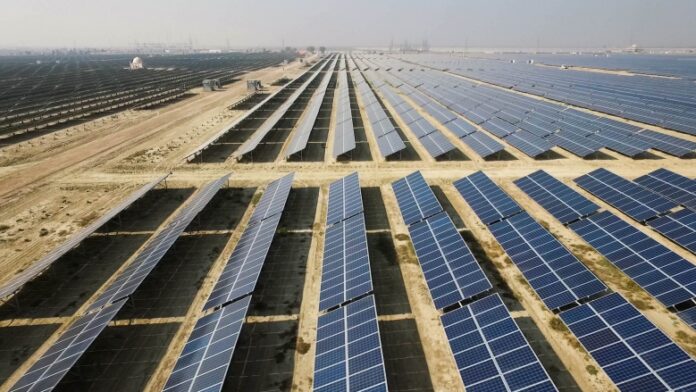WWEA Secretary General Stefan Gsanger praised Pakistan’s efforts to optimize the use of vast indigenous wind and solar power sources while speaking as the guest of honour at an online seminar commemorating the first-ever International Day of Clean Energy.
Gsanger reminded that Pakistan was one of the first to support the establishment of the International Renewable Energy Agency as a worldwide entity for intergovernmental collaboration to accelerate the transition from fossil fuels to renewable power sources in various parts of the world.
He assured the webinar’s online participants that the WWEA would continue to actively support Pakistan’s efforts to acquire the latest technology for maximum power production from clean energy sources in the country for environmental protection and the availability of the cheapest electricity to end users.
He stated that Pakistan should capitalise on its accomplishments in the renewable power industry to expand its clean energy market and attract international investment.
He stated that significant international makers of clean energy equipment will be enticed to invest in Pakistan owing to the country’s vast market size for wind and solar power generation installations.
He told the gathering that Pakistan could learn a lot from China’s quick development in establishing wind power plants to maximise sustainable energy output in the nation within a few years.
Gsanger praised local investors and power sector businesses for successfully installing a number of wind power facilities in Pakistan to satisfy the government’s clean energy production objectives.
Syed Aqeel Hussain Jafri, representing the Private Power Infrastructure Board (PPIB), informed the audience about the PPIB’s active role in assisting the private sector in establishing new wind and solar power plants to meet the country’s target of 30% clean power production by 2030.
He expressed hope that as the national economy stabilizes following the election of a new government on February 8, the private sector and international energy companies will become more interested in investing in Pakistan’s renewable energy market.
Waqas Moosa, representing the Pakistan Solar Energy Association, informed webinar participants about the recent hardships faced by Pakistani clean energy companies as a result of import restrictions on solar panels and other renewable energy equipment due to the country’s depleted foreign exchange reserves.
Moosa advised that Pakistan begin indigenous manufacture of inexpensive tiny solar panels with lower power output capacity, which are mostly used in the rural market.
He stated that placing high import duties on solar panels and other renewable energy equipment in order to encourage domestic manufacture of the same things was not a viable long-term strategy.
Mehfooz A Qazi, project director of the Sindh Solar Energy Project, briefed the audience about the province’s World Bank-funded initiative to establish solar parks, install solar panels on the roofs of government buildings, and provide solar home systems to rural communities.
He stated that the solar parks planned under the Sindh Solar Energy Project will give a significant opportunity for the private sector to participate in clean energy.
Irfan Ahmed, an energy specialist, led the webinar. He proposed that mini- and microgrids be created to ensure that solar energy resources are widely exploited to power remote rural villages.
He stated that solar energy was a dispersed power resource that should be used inside a province rather than being sent to distant places in neighbouring provinces, which might result in energy waste owing to transmission and distribution system losses.
He suggested that Pakistan establish factories to manufacture solar panels and other associated equipment domestically so that new renewable energy plants may benefit the national economy to the greatest extent possible.
According to Naeem Qureshi of the Energy Update, the webinar was held to comprehensively evaluate Pakistan’s progress towards increasing the percentage of clean power in the national energy mix.
He stated that the Energy Update will continue to host similar seminars in order to bring together all important power sector players in one location to determine the best course of action for resolving different difficulties facing the local clean energy market.





